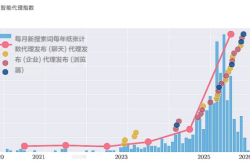Xiamen Unveils a Hidden Industry Leader: Dominating Airport Facial Recognition Technology
![]() 07/17 2025
07/17 2025
![]() 614
614

Emerging from Xiamen, RealAI Technology stands as a formidable hidden champion.
In bustling airport check-in halls, passengers glide through with luggage in tow. Security checks become a seamless experience, eliminating the need for constant fumbling with IDs and boarding passes. By stepping into a millimeter-wave security channel, intelligent cameras swiftly capture facial information, ensuring a swift process from entry to exit, often within just 30 seconds.
These scenes encapsulate the innovative prowess of RealAI Technology: visual intelligence technology. Simply put, RealAI's core expertise lies in deploying visual intelligence across various industries, notably airports.
This tech venture, rooted in Xiamen, is the brainchild of Zhangzhou entrepreneur Zhan Donghui, a former Huawei stalwart.
Zhan Donghui embarked on his entrepreneurial journey with five former Huawei colleagues, initially dipping their toes into the video surveillance market in Nanjing. Sensing the burgeoning wave of artificial intelligence, they pivoted to focus on visual intelligence.
Their applications have diversified widely, from Xiaomi's popular beauty enhancement feature to the comprehensive facial recognition boarding system at Lanzhou Airport, and extending to the extensive use of facial recognition equipment at Beijing Daxing Airport. Over a decade, Zhan Donghui has infused the vision of "machines understanding the world" into sectors like transportation and healthcare.
In the domestic visual intelligence product market, RealAI Technology leads the civil aviation sector with a market share of 8.9%, based on 2024 revenue figures.
- 01 -
Hailing from Zhangzhou, Zhan Donghui graduated from Nanjing University's Department of Electronic Engineering in 1998. After joining Huawei in 1998, he spent a decade rising through the ranks, from R&D positions to project manager, department manager, and ultimately R&D director of a Huawei product line.
In 2008, Zhan Donghui ventured into entrepreneurship, establishing Yuanli Technology in Nanjing alongside five Huawei colleagues (two architectural designers, two project managers, and one senior engineer).
Initially, Yuanli Technology's direction was uncertain, primarily offering design outsourcing services. Later that year, the company undertook a project to design a network hard disk video recorder for Japanese clients, prompting Zhan Donghui to realize the limitations of outsourcing for long-term growth.
He repositioned Yuanli Technology as a high-performance video surveillance equipment supplier, focusing on high-end video servers. Within three years, Yuanli Technology turned profitable, providing ODM services to numerous video surveillance vendors.
However, by 2011, Zhan Donghui foresaw the rapid maturation and potential saturation of the security video surveillance industry within a few years. Conversely, artificial intelligence showed immense development potential, with applications transcending video surveillance.
Consequently, in 2012, Zhan Donghui sold Yuanli Technology for tens of millions of yuan.
Returning to his hometown of Fujian, he founded Xiamen RealAI Information in 2012, alongside his core team.
Choosing Xiamen for their venture was driven by both a sense of hometown pride and the city's attractive support policies for advanced manufacturing.
RealAI Technology initially ventured into the consumer electronics sector. In 2013, Xiaomi approached RealAI to develop a camera feature capable of "intelligently recognizing human facial features." After months of effort, RealAI successfully implemented the algorithm on mobile phones, leading to the launch of Xiaomi 3's smart beauty camera feature, which garnered positive feedback.
This collaboration served as a springboard for RealAI Technology. Subsequently, they partnered with mobile phone manufacturers like Lenovo and Huawei, as well as smart home appliance enterprises such as Konka, Skyworth, and TCL. By the first half of 2014, over 70% of domestic smart TVs featuring face and gesture recognition utilized RealAI's technology.
In 2016, the company adopted a dual-wheel strategy focusing on "AI + Public Safety" and "AI + Commercial Intelligence," initiating their foray into smart airport scenarios.
Inspired by long security lines during flights, Zhan Donghui pondered how AI could streamline travel. This simple idea evolved into the company's core business direction.
In 2017, RealAI Technology was selected for the airport facial recognition system supplier directory. In January 2018, they facilitated Lanzhou Zhongchuan International Airport's groundbreaking commercial application of a full-process facial recognition boarding system, establishing Lanzhou Airport as a benchmark for smart airports.
When Beijing Daxing International Airport commenced operations in 2019, RealAI Technology supplied over 300 facial recognition equipment and systems, covering check-in, security checks, and boarding, with a market share exceeding 90%.
Their impressive technological prowess garnered capital attention. In May 2018, they completed their B+ round of financing with Intel as a strategic investor. In 2019, Greenland Group injected over 156 million yuan. Additionally, several institutions, including Saif Partners, Hongyu Capital under Shanghai Airport, and China Merchants Capital, followed suit with investments.
In 2022, the company's revenue stood at 78 million yuan, surging to 242.375 million yuan in 2023 and 395 million yuan in 2024, accompanied by an annual profit of 8.28 million yuan.
- 02 -
In layman's terms, RealAI Technology specializes in deploying visual intelligence technology across various industries, notably airports.
Within their product matrix, the "WanWei Smart Boarding Gate" significantly contributes to their revenue.
This innovative airport device functions akin to a "smart guardian" at boarding gates.
Traditional boarding gates primarily relied on infrared technology with limited functionality, mostly opening and closing doors. Passenger identity verification was manual, leading to issues like tailgating and boarding under false names, placing a heavy burden on ground staff.
The "WanWei Smart Boarding Gate," however, leverages multi-sensor, multi-modal visual perception, and AI technology, essentially equipping the boarding gate with a powerful "AI brain." This enables it to accurately identify each boarding passenger with exceptional precision.
With this boarding gate, passengers simply walk through to complete identity verification and security checks in 3-5 seconds, facilitating the swift passage of over 600 people per hour.
According to Frost & Sullivan's report, the global market size for visual intelligence products is projected to grow from USD 13.6 billion in 2020 to USD 34.6 billion in 2025, marking a compound annual growth rate of 20.7%.
The Chinese market is expanding even more rapidly, with the market size anticipated to surge from USD 3.2 billion to USD 12.3 billion over the same period, reflecting a compound annual growth rate of 31.2%.
Several factors contribute to this market explosion:
In security, the demand for intelligent public safety monitoring continues to soar.
In transportation, smart transportation initiatives increasingly demand intelligent recognition and management of vehicles and pedestrians.
In commerce, enterprises seek intelligent applications like consumer behavior analysis and passenger flow statistics to enhance operational efficiency and consumer experience.
Looking ahead, novel visual intelligence scenarios are gradually emerging.
For instance, in telemedicine, high-definition real-time video image transmission and intelligent analysis aid doctors in making accurate and efficient remote diagnoses.
Take the People's Hospital of Heishui County, Aba Prefecture, as an example. Since launching the 5G remote image consultation system in 2023, local hospitals have efficiently collaborated with experts from the Second Hospital of Jiaxing City, Zhejiang Province. Early one morning, Fu Zhenhua, an expert from the Second Hospital of Jiaxing City participating in a group assistance program, diagnosed Mr. Li, a patient at the People's Hospital of Heishui County, through the system.
In smart retail, large supermarkets utilize 5G networks for real-time monitoring and analysis of consumer behavior, enabling them to capture detailed insights into customer movements, dwell times, product attention, and more.
Furthermore, in smart homes, the demand for products like visual intelligence door locks and smart cameras is on the rise.
With 5G technology, the remote monitoring capabilities of smart cameras have been optimized. Previously, network bandwidth limitations resulted in blurry images, lag, and severe delays. However, 5G's high bandwidth enables real-time high-definition monitoring and even supports 8K high-definition video streams, allowing users to clearly and promptly monitor their homes from anywhere.
The content of this article is for reference only and does not constitute investment advice.








